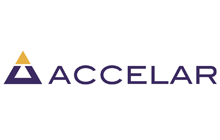Introducing… Project 3. The third and final analytical consortium project here at TIES Living Lab. The project is managed by Phill Wheat of University of Leeds.
Accelar Limited is the environment lead on the analytical consortium. They focus on four themes within TIES Living Lab, those being carbon, circular economy, biodiversity and climate resilience. Accelar has been working with Living Lab partners to understand what data they already collect on each environmental theme and if it’s possible to create performance benchmarks from that data. They’ve also been developing a set of agreed metrics going forward to make benchmarking easier in the future and feed into Project 1 – Metrics, Benchmarking & Repository and Project 8 – Intelligent Infrastructure Control Centre. Accelar has been analysing the TIES Living Lab data that we have to understand drivers of performance. They’re also looking to see how partners could collect data better in the future to enable more effective benchmarking. To achieve these objectives, Accelar facilitates a community of practice for each of the environmental themes, engaging with relevant subject matter experts from Network Rail, Transport for London, National Highways, HS2 and East West Rail. Accelar is working with our colleagues across the analytical consortium to understand and promote the smarter use of data and benchmarking across the life cycle of constriction projects, addressing productivity, decarbonisation, environmental and social value improvements alongside the traditional aspects (e.g. cost, quality and schedule).
Project Objectives:
- Undertake top-down statistical analysis, deep learning techniques and process benchmarking of precisely what drives:
- Cost
- Duration
- Sustainability
- Differences in performance for each case study considering TIES Living Lab Project types
- Establish a holistic approach to the analytical tools for benchmarking, drawing together data requirements and assessing value using a road map for the routine benchmarking of futures TIES projects
Project Outcomes:
- Implement analysis on specific assets which will provide assurance for what projects should cost, the expected construction time and the carbon and environment performance of projects
- Provide a clear value proposition for how benchmarking can be developed to better exploit the new emerging data


